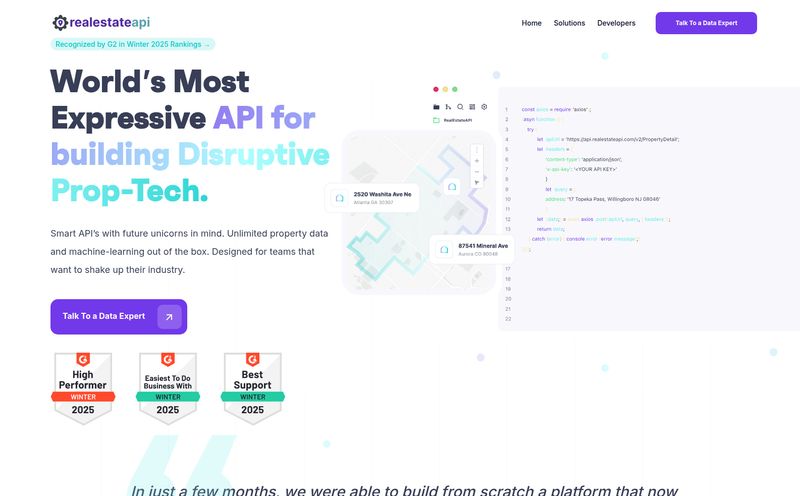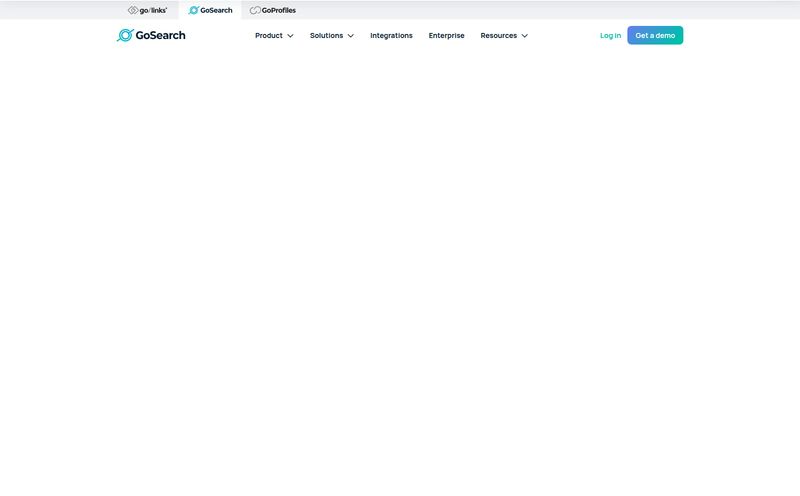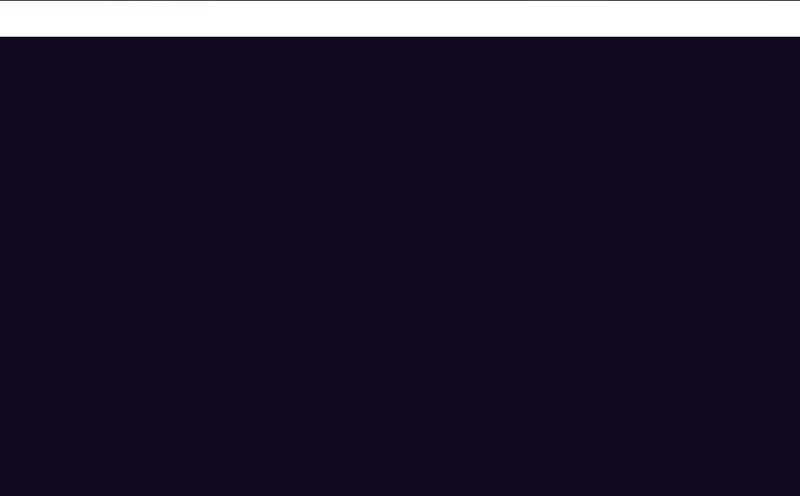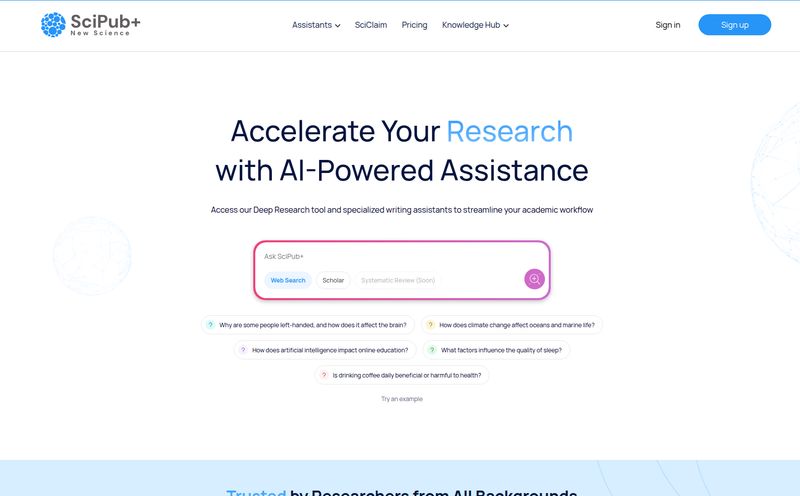We've all been there. It’s 1 AM, you're fueled by the last dregs of lukewarm coffee, and you're staring at a search results page that feels more like a random word generator than a path to knowledge. You’re trying to find that one specific study on CPC fluctuations in niche markets, but you're drowning in a sea of vaguely related, mostly paywalled, and utterly useless PDFs. It's the modern researcher’s nightmare. For years, my process was a chaotic dance between Google Scholar, university library portals, and a desperate prayer to the SEO gods. It was… a grind.
Then a colleague mentioned Semantic Scholar. I probably nodded politely and forgot about it, because who has time to learn a new platform, right? But the name stuck with me. As an SEO guy, the word “semantic” is my bread and butter. It’s the magic behind how Google understands intent, not just keywords. A search tool built on that principle for scientific literature? My curiosity was officialy piqued.
So What Is Semantic Scholar, Exactly?
In short, Semantic Scholar is a free research tool powered by some serious AI. It’s a project from the Allen Institute for AI (AI2), which right away tells you this isn't some fly-by-night startup. These are the folks dedicated to AI for the common good, and they’ve pointed their considerable brainpower at one of the most frustrating tasks on the planet: navigating academic papers.
Unlike traditional search engines that just match the words you type, Semantic Scholar tries to understand the meaning and context of the research. It sifts through a mind-boggling database of over 200 million papers from every field imaginable, using AI to figure out which ones are actually relevant to your work. Think of it less like a simple search bar and more like a brilliant, incredibly fast research assistant who has read everything. Ever.
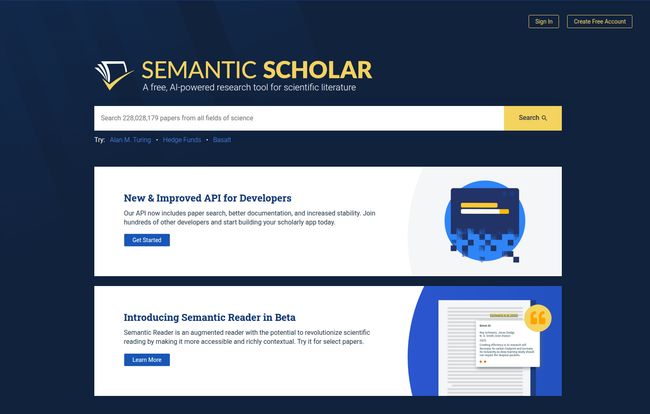
Visit Semantic Scholar
Why I'm Breaking Up with My Old Research Methods
Switching tools can feel like a hassle, I get it. But after spending a few weeks with Semantic Scholar, I've found a few features that make it literaly impossible to go back to my old, chaotic ways. It’s not just a minor upgrade; it’s a whole new way of working.
The AI Search Is a Super-Smart Librarian
This is the core of the experience. You can search for a topic, and the AI doesn't just give you a list of papers with that keyword. It identifies influential papers, shows you how many times they've been cited (and by whom), and even provides a handy one-sentence summary, courtesy of the AI. This “TL;DR” feature alone has saved me countless hours of opening PDFs only to realize they aren’t what I needed. It's like having a pre-screening process for your brain. You can quickly see the key findings and decide if a paper is worth a deeper look. It's a fundamental shift from keyword matching to genuine topic discovery.
Reading Papers on Steroids with the Semantic Reader
Now this is where things get really interesting. Semantic Scholar is rolling out a feature called the Semantic Reader. It’s still in beta, so you have to be a little forgiving, but the potential is massive. It's an augmented reading interface. When you open a paper, it can automatically highlight and link to definitions of technical terms, find background information on cited papers, and just generally make dense, jargon-filled text more accessible. It’s like reading a paper with an expert sitting next to you, ready to explain the tricky bits. For someone jumping into a new field or just trying to get up to speed quickly, this is an absolute lifesaver.
An API for the Geeks Among Us
As someone who loves to tinker, seeing a well-documented API got me excited. For most users, this won’t matter. But for developers, data scientists, and other researchers, it means you can build custom applications on top of Semantic Scholar's massive database. You can pull data for large-scale analysis, create custom dashboards, or integrate research discovery into your own tools. It shows a commitment to the open research community that I really respect.
And Yeah, It’s Completely Free
Let’s just pause and appreciate this for a moment. In a world where academic publishers have put knowledge behind ridiculously expensive paywalls, a tool this powerful being offered for free is incredible. There's no premium tier, no hidden costs. It's just free access to a world of scientific knowledge, supercharged by AI. This democratizes research in a way that’s badly needed.
Let's Be Real, No Tool Is Perfect
I'd be lying if I said Semantic Scholar was flawless. It’s an amazing platform, but it's important to go in with realistic expectations. Like any tool, especially one leaning heavily on new technology, it has its quirks.
The AI Can Be a Little... Enthusiastic
The AI-generated summaries are fantastic 90% of the time. But that other 10%? Sometimes the AI misses the main point or focuses on a minor detail. It's a machine, after all, and it doesn't have true human understanding. I've learned to treat the AI summaries as a powerful starting point, not as an infallible substitute for actually reading the abstract and introduction myself. It’s a guide, not a gospel.
Living on the Edge with Beta Features
The Semantic Reader is a prime example of this. It's an amazing concept, but because it's in beta, it can be a bit clunky. It doesn't work on all papers, and sometimes the interface can feel a little slow. This is the trade-off for being on the cutting edge. You get access to groundbreaking tools, but you also have to be a bit of a guinea pig. For me, the occasional glitch is well worth the benefit.
How Does It Stack Up Against Google Scholar?
This is the big question, right? For years, Google Scholar has been the default for many of us. And it's still a great tool! But the approach is different. Google Scholar is a brute-force indexer—it's fantastic at finding almost everything ever published. Semantic Scholar is more of a curator. Its strength isn't just in finding papers, but in helping you understand them and their context within the scientific conversation.
I find myself using them together. I might do a broad search on Google Scholar, but when I need to realy understand a topic, find the most influential papers, or get up to speed quickly, I switch to Semantic Scholar. Its AI-driven filtering and contextual tools just give it an edge for focused, in-depth work.
Frequently Asked Questions
Is Semantic Scholar really free?
Yes, 100%. It's a project by the non-profit Allen Institute for AI, and they are committed to keeping it free for the global research community. No hidden fees or 'pro' versions.
How is Semantic Scholar different from Google Scholar?
Think of it as quality over quantity. While Google Scholar is a massive index, Semantic Scholar uses AI to analyze papers, identify key findings, and show you connections between studies. It’s designed more for discovery and understanding than just finding a specific document.
Who is behind Semantic Scholar?
It's developed and maintained by the Allen Institute for AI (AI2), a leading non-profit research institute founded by the late Microsoft co-founder Paul Allen. This gives the project significant credibility and stability.
What kind of papers can I find on it?
Pretty much everything. The database covers all fields of science, from computer science and medicine to social sciences and the humanities. As of late 2023, they have well over 200 million papers indexed.
Is the API difficult for non-developers to use?
The API is designed for people with some programming knowledge. If you're not a developer, you can safely ignore it and still get 100% of the value from the main website. It's an optional, power-user feature.
Can I trust the AI's summaries and classifications?
You can trust them as a very good starting point. The AI is impressively accurate, but it's not perfect. Always use its suggestions as a guide to prioritize your reading, not as a replacement for your own critical evaluation.
My Final Take on Semantic Scholar
Look, the world of academic and scientific research is never going to be easy. It requires critical thinking, patience, and a lot of reading. But tools like Semantic Scholar can take away a huge chunk of the friction. It removes the tedious, frustrating parts of the process, letting you focus on the actual thinking and learning.
For students, independent researchers, or even seasoned professionals trying to stay on top of their field, it's a phenomenal resource. It's not perfect, but its commitment to open access and its intelligent use of AI make it one of the most exciting tools I've added to my workflow in years. It’s helped me close a few of those hundred brain-tabs, and for that alone, I’m a fan.
Reference and Sources
- Semantic Scholar Official Website
- Allen Institute for AI (AI2)
- What Is Semantic Search? - An article from Search Engine Journal providing background on the underlying concept.
